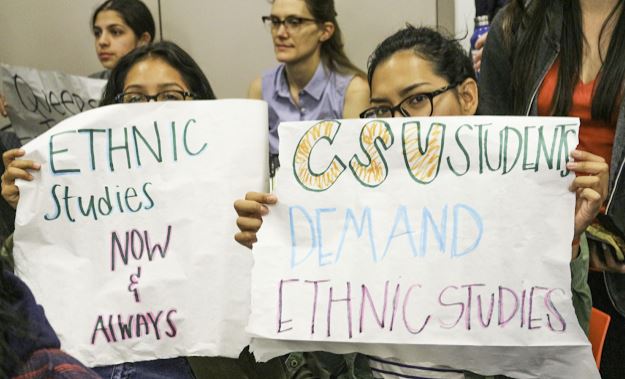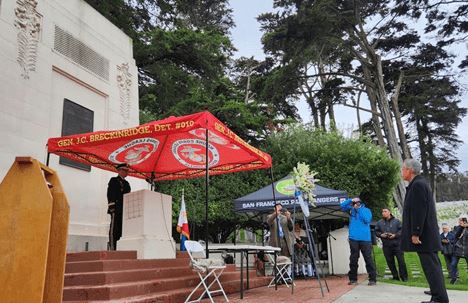With the nation in a heightened state of racial awareness because of the killing of George Floyd, the California State Senate passed a bill, 30-5, on Thursday that would require completion of one three-unit ethnic studies course as a graduation requirement.
The bill, AB 1460, is authored by Assemblymember Dr. Shirley Weber, a former San Diego State University faculty and member of the California Faculty Association (CFA).
AB 1460 has already passed the State Assembly and now awaits the signature of Governor Gavin Newsom.
The bill would add ethnic studies courses, including issues of race and gender and sexual identity, at all 23 campuses but would not result in additional units, as students would be able to take the ethnic studies course in place of other electives.
LATEST STORIES
The bill requires the California State University, the largest higher education system in the US, to require the completion of a 3-unit ethnic studies course as an undergraduate graduation requirement, starting with the 2024-2025 academic year. All 23 CSU campuses are required to provide ethnic studies courses starting with the 2021-2022 academic year, according to the bill.
Ethnic studies focuses on four historically defined racialized groups: African Americans, Native Americans, Asian Americans, Latina/o Americans, according to the bill.
“This is a moment to be proud of and say the issue of race specifically needs to be talked about,” Senator Henry Stern said.
While the idea of requiring students to study the contributions of nonwhite ethnic and racial groups has been long-standing in California, the latest push is happening amid nationwide anti-racism protests and calls for systemic change ignited by the police killing of George Floyd and other African Americans.
“It is absolutely critical that all of our students have an opportunity to learn and engage in ethnic studies,” said CFA Vice President Charles Toombs, who teaches Africana Studies at San Diego State. “It’s in these classes that they gain a deeper understanding of different communities and their histories, struggles, and triumphs. And that, in turn, provides an opportunity to embrace a racial justice perspective.”

During the Senate meeting, Senator Ling Ling Chang, R-29th District, recalled when she had the opportunity to educate a woman while Chang was knocking on doors to garner support. When a woman responded by saying she will never vote for ”an oriental”, a derogatory term to describe Asians, Chang took the time to educate her on acceptance.
“Ignorance can become hatred … Ultimately this is something I have to support because if we can kill hatred by just informing and educating our students to think critically, to think in different ways to seek more understanding, I think that’s a good thing,” Chang said.
The demand for ethnic studies has deep historical ties to student-led efforts. In the fall of 1968, the a coalition of Blacks, Asians and Latinos in the Third World Liberation Front engaged in over four months of protests that resulted in the creation of the nation’s first college of ethnic studies. Since then, dozens of ethnic studies programs and departments have been established across CSU, the largest four-year university system in the nation with 480,000 undergraduate students. Across the system, students of color make up a strong majority of the student body.
Since then, many campuses across the country called for an establishment of their own ethnic studies departments.
To close the hearing, Senator Steven Bradford recounted how he felt “ill-equipped” to pass an African American history course — which was taught by Assemblymember Weber — during his freshman year. He explained that the school system does not prepare students to learn history outside of what is in their textbooks.
“The school system does not prepare students to know about the real truth or the real history. This course will allow at least a little better understanding of each and every one of us,” Bradford said. “The urgency of now has clearly been demonstrated over the last three weeks in this country and around the world that we need systemic change when it comes to talking about our great diversity and ethnic differences in this country.”








